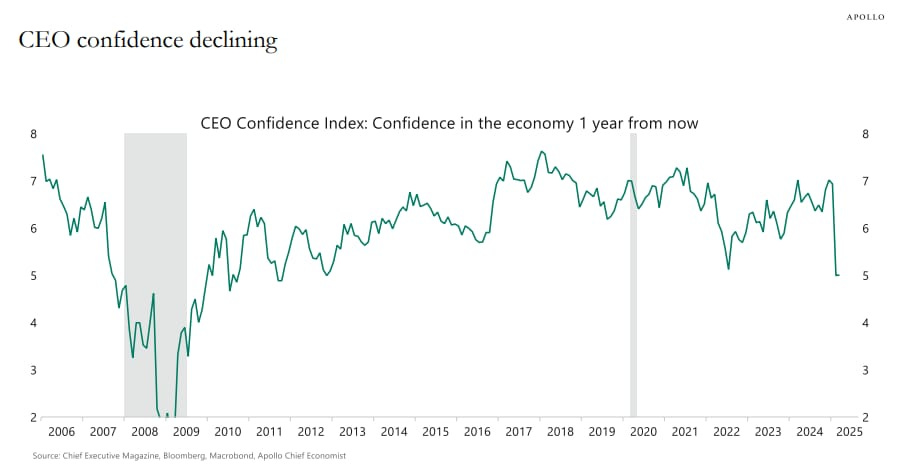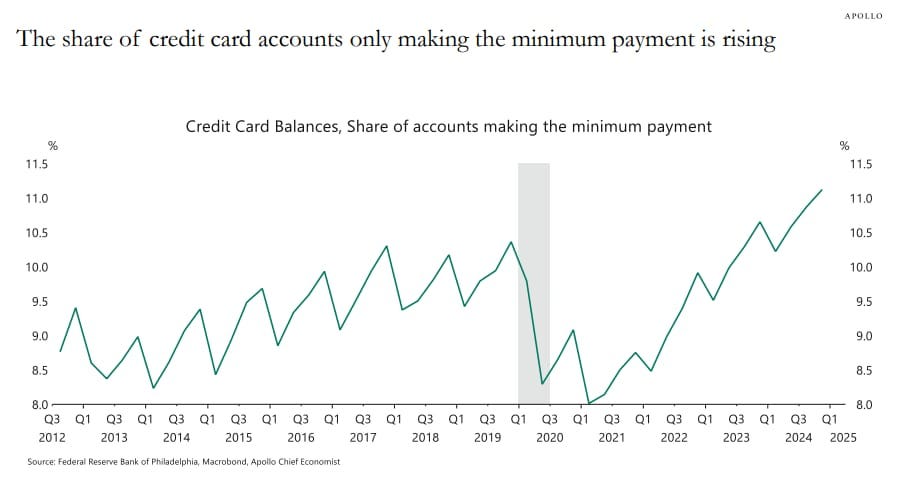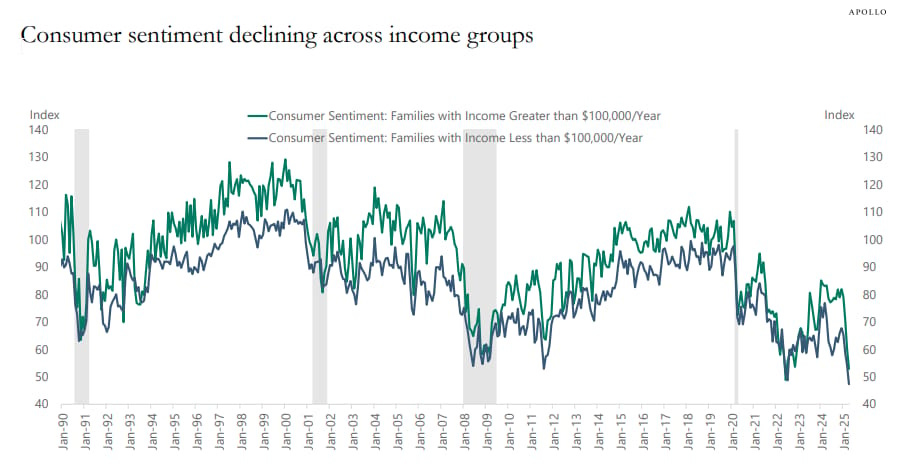Group Chats w/ Too Much Juice, OpenAI gets Shopify’d, + Tariff Reality Checks | Intent, 0023
The hidden networks influencing the "vibe shift," OpenAI's controversial commerce play, and signs of economic strain.
Back again with another dose of Intent to help you stay informed, fluent, and aware of the goings-on shaping tech and your career within it.
A few quick reminders before we dive in:
The agenda ahead:
The Signal chats steering Silicon Valley’s politics
OpenAI adds ecommerce to ChatGP
Tariff reality represented in the data
3 startups to watch (and one unicorn déjà‑vu warning)
The Group Chats That Changed America
TL;DR
Ben Smith (Semafor) lifted the curtain on private Signal and WhatsApp groups where Marc Andreessen and other top venture capitalists (+ tech adjacent) have spent the past 5 years debating policy, memeing, and coordinating social media posts.
These invite-only rooms helped swing Silicon Valley sentiment from “anyone but Trump” to “MAGA‑curious → MAGA‑invested.” Enabled by… disappearing messages, billion‑dollar egos, no PR filter.
Key beats
A sprawling network of private Signal & WhatsApp groups among Silicon Valley power players (e.g. Marc Andreessen, Joe Lonsdale, Balaji Srinivasan) gained traction during the early days of COVID.
These chats became, in some sense, a secret “Republic of Letters,” forging alliances between tech elites and the growing “new/alt right.”
Not everyone inside these chats leans pro-Trump (Mark Cuban, for example), but in many ways they became an incubator for the realignment that propelled Donald Trump back into the White House in 2024.
Our take
Sherveen calls 2022’s Valley pivot the single biggest leverage point that handed Trump 2024. People on the outside might assume the big players each came to their positions independently, but per Smith’s reporting, the “dark matter” of group chats shaped a heavily pro-Trump consensus. They mocked outsiders and used alternative media (read: podcasts) to launder their views.
There's a striking hypocrisy here. Reminder that venture capitalists and powerful founders rallied around demands for apolitical workplaces in recent years (ex. Coinbase, where employees were told that work is just for work).
It’s a reasonable request in a vacuum, but not while that group simultaneously engaged in high-stakes, behind-the-scenes political maneuvering and alliance-building with their colleagues and using their industry leverage. Meanwhile, they’re often framing themselves as victims of censorship.
The casual deployment of terms like "TDS" (Trump Derangement Syndrome) served as a potent tool to sideline dissent within these circles and beyond. This network represents a powerful, often opaque force operating beneath the surface of public discourse, and its long-term impact is something we'll continue to track.
The group chats are real, they’re influential, they’re messy, and we’ll probably hear more leaks as we head toward mid-2025.
ChatGPT Adds Shopping – Good UX or Incentive Mess?
OpenAI will soon surface product carousels and “buy” links inside ChatGPT. WIRED spoke with Adam Fry, the company’s search product lead, to ask how it all works.
Recommendations will leverage ChatGPT's memory of user preferences and synthesized reviews pulled from across the web (publishers, forums like Reddit, etc.). OpenAI claims these initial results will be organic, not paid placements or ads, unlike much of Google Shopping.
Our take: This feels like a significant, potentially detrimental, shift for OpenAI. It’s the first product choice that has our team universally scratching their heads.
People use ChatGPT for all sorts of creative tasks and “neutral” research, without an overt commercial incentive skewing the results.
It’s the sense that a model like 4o or o3 with ‘Search’ enabled acts more like we do, scouring for the truth amongst a sea of online content, rather than being a structured research portal or ranked set of links.
If or when affiliate fees enter the equation (which Fry acknowledged they'll experiment with), whose reviews or data points get top billing?
Even if placements aren't directly paid initially, the system will naturally become incentivized to prioritize products and sources that facilitate transactions or offer affiliate potential. A model will be lightly encouraged to use its tools when relevant, and if one of its tools is a shopping module…
Sherveen’s stance: Paid ChatGPT subs should be funding the product’s efficacy, which in this case, is also its neutrality. If OpenAI wants to cut in publishers on the $$, cool — do it via transparent licensing, not affiliate skew.
Tariff Transparency & Consumer Gloom
Apollo Global Management's latest report paints a grim picture:
CEO confidence is seeing its steepest decline since '08
The share of credit card accounts making only minimum payments hit a high of 11% (well above the ~9% average since 2012)
consumer sentiment is cratering across all income groups, hitting '08 lows; and 70% of consumers expect more unemployment ahead.



These aren't abstract policy debates; the economic anxiety is palpable.
Career takeaway – Employers will tighten belts; negotiate cash comp, not just equity. And maybe hold off on that imported standing desk until you see the tariff line item.
Three Interesting Startups (1 is a red flag)
Think a friend could use a dose of Intent? Forward this along — group chats may rule the world, but good emails still move the needle.
As always, hit reply to let us know what you think! If you aren't subscribed, what're you doing!? Click here!
Sent with Intent,
Free Agency
